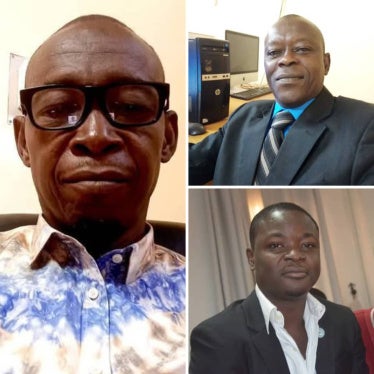The human rights situation in Somalia, particularly in the south-central part of the country, remains dire. The Islamist armed group al-Shabaab continues to commit serious abuses including targeted killings, executions and punishments amounting to torture both in areas under its control and in government areas, including the capital, Mogadishu.
In Mogadishu, Somali security forces and non-state armed groups remain responsible for serious abuses. Targeted killings of journalists, clan elders, and officials have increased over the first seven months of this year. Internally displaced persons have been subjected to forced evictions, beatings and severe restrictions on access to food and shelter. Women and girls, particularly those internally displaced, face significant risks of rape, including by government forces and affiliated militia. Ongoing fighting has resulted in civilian casualties, particularly in the contested town of Kismayo. In Puntland and south-central Somalia, military courts have imposed the death penalty against both soldiers and civilians.
The new Somali government has had a mixed record in addressing this difficult situation. It has made public commitments to tackling abuses, reforming the security sector, and holding its forces to account, including for sexual violence. But concrete changes have been minimal.
There are immediate steps for the government to take. It should impose a moratorium on the death penalty, ratify key human rights conventions, establish vetting procedures for the armed forces and police, and ensure that sexual violence can be prosecuted without risk to victims, service providers and journalists.
Ensuring long-term respect for basic rights requires that the new government address the culture of impunity that has persisted throughout Somalia’s civil war. An independent mechanism to systematically document abuses by all sides is key for accountability, and should be part of any international response.The Security Council has mandated the new assistance mission to Somalia, UNSOM, to monitor and publicly report on abuses. Human Rights Watch urges the Somali government, the UN, and donor countries to ensure that monitoring and regular public reporting by the UNSOM Human Rights Unit be a priority and that qualified staff are recruited without delay. The Council should no longer remain silent on this issue, as sustained reporting on human rights abuses can be an important deterrent against future abuses, paves the way for greater accountability, and would help focus the support of Somalia’s donors.
Given the gravity of the crimes committed in Somalia, Human Rights Watch reiterates its call for the establishment of a UN commission of inquiry—or a comparable, appropriate mechanism—to document serious crimes in violation of international law committed in Somalia and recommend measures to improve accountability.






